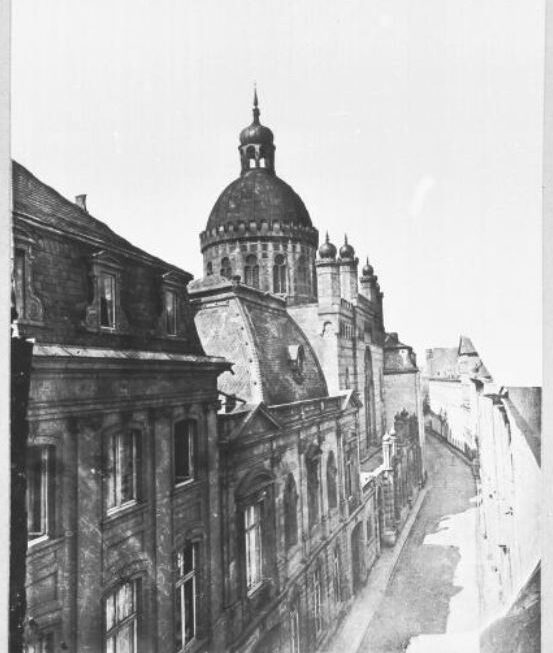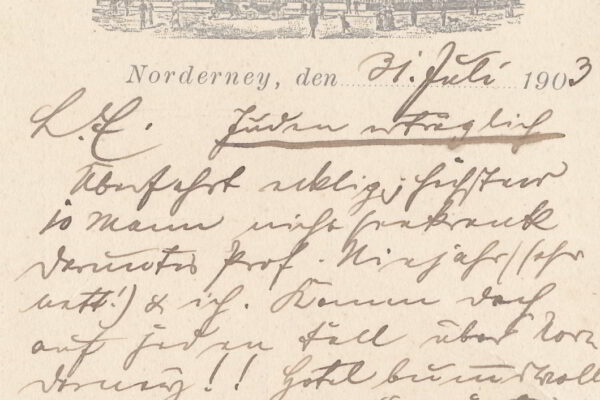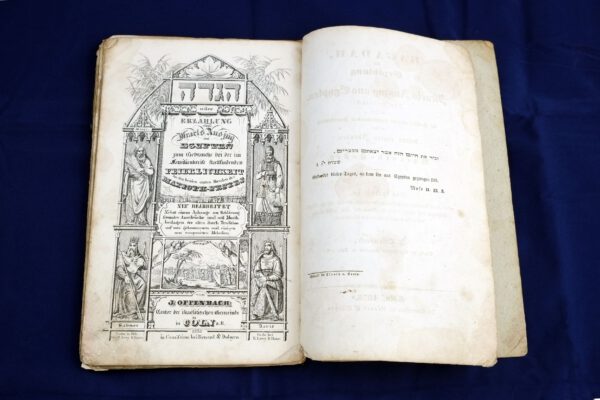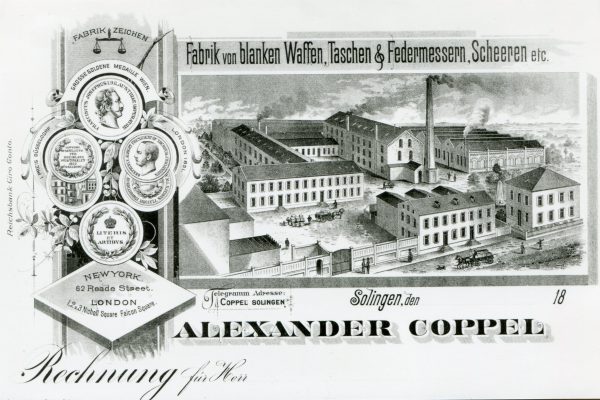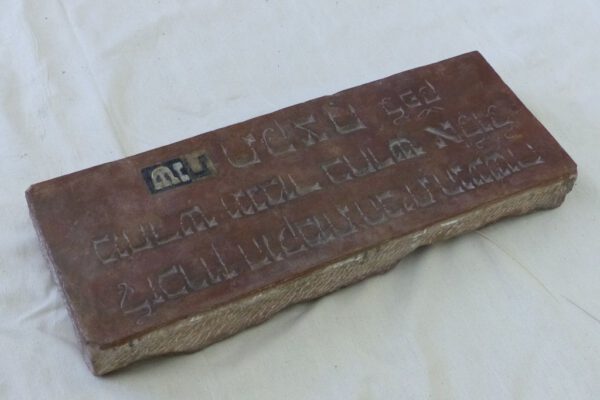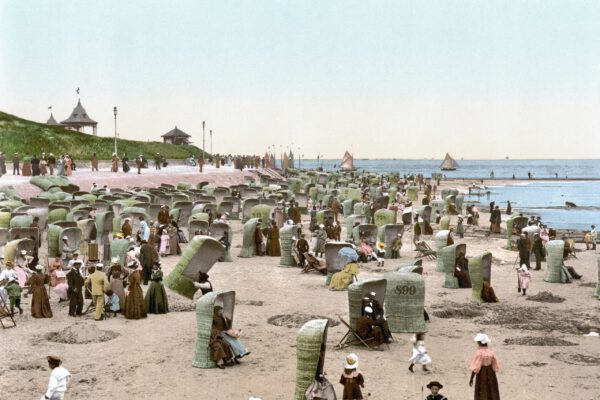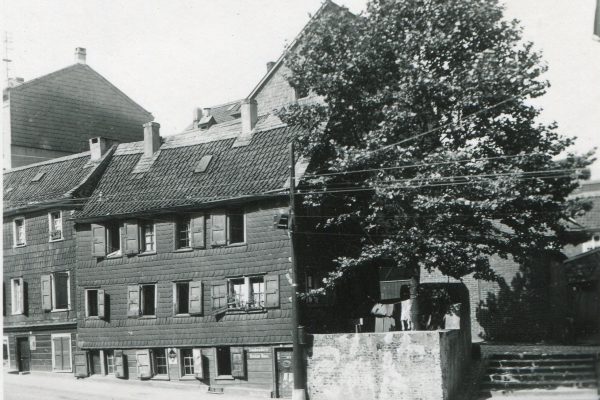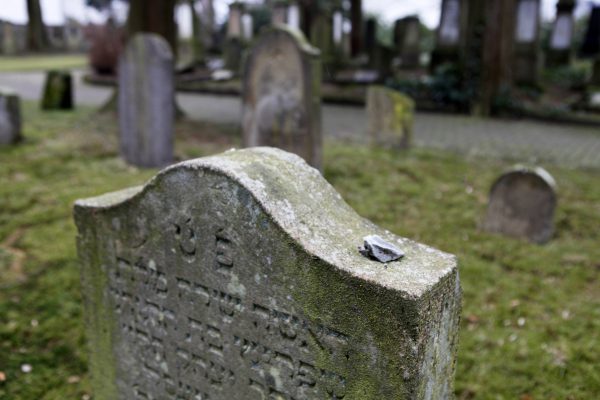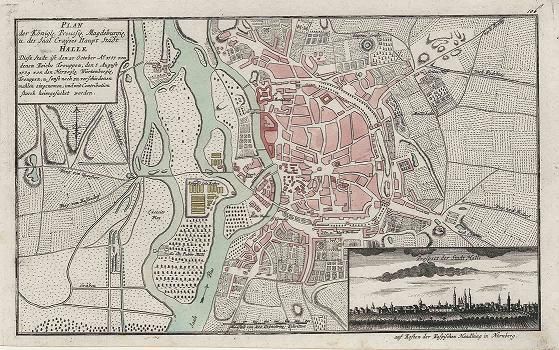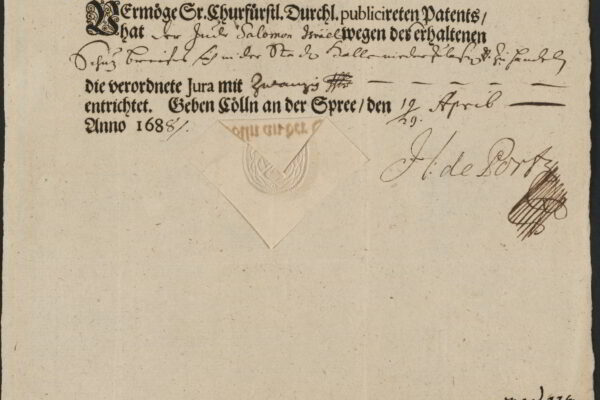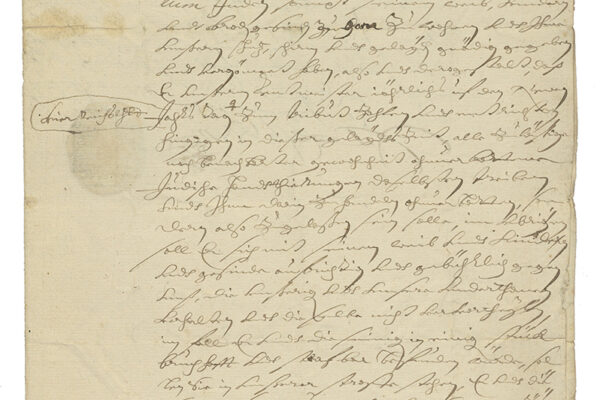After their expulsion from Cologne in 1424, Jews were not permitted to resettle in the cathedral city until 1798. After being readmitted, they founded a congregation and used the premises of the former convent of the Order of Saint Clare on Glockengasse. A steadily growing number of members led to the planning of a new […]
„Jewish bathing resort“ Norderney
Around 1850, Abraham von der Wall, a butcher from Norden, settled in Norderney and opened a kosher butcher’s shop and restaurant. He was followed by other Jewish butchers and restaurant owners, as well as numerous merchants and hoteliers. Even before the First World War, Norderney was considered an affluent “Jewish bathing resort,” while anti-Semitism emanated […]
The Offenbach Hagadah
Isaac Offenbach, the father of the composer Jacques Offenbach, was a cantor in the Jewish community in Cologne for many years. He was a musician, composer, and bookbinder. In 1838, he penned the Haggadah, traditionally written in Hebrew, in German. In doing so, he presented a new adaptation of the scripture that has been read […]
Foundation of the steel goods company Alexander Coppel in Solingen
In 1821, Alexander Coppel founded a company which initially produced and sold manufactured, iron, and steel products. In the late 1860s, he concentrated on cold weapons, which soon made him a leading weapons manufacturer with worldwide business connections. Alexander Coppel let the community share in his business success. He was instrumental in supporting the construction […]
Temporary right as a citizen
In 1806, Halle was the first city in the Kingdom of Prussia to be occupied by Napoleon’s French troops. As a result, the city—now called “Departement der Saale, District Halle”—came under the rule of the Kingdom of Westphalia, whose constitution was valid from then on. For the Jews of Halle, this meant a considerable improvement […]
Norderney officially named seaside resort
On October 3, 1797, Norderney became the first official Royal Prussian seaside resort on the German North Sea coast. Already in the first decades after the foundation of the seaside resort, Jewish bathers travelled to Norderney. Initially, they came primarily from East Frisian cities, later also from Osnabrück, Bremen, and Hamburg. In 1820, there was […]
Erection of the first known synagogue in Solingen on Südwall
In 1787, Michel David and Coppel Samuel purchased a building on Südwall, which served as a synagogue and school from 1788 to 1872. The residences of the Jews were scattered throughout the city, and several of the residential buildings were already owned by Jews. Jews also lived in the towns of Gräfrath and Wald, which […]
First mention of the Jewish cemetery in Solingen
The Jewish burial place “am Clauberg” was first mentioned in 1718. The origins are unknown. The oldest preserved gravestone is dated June 15, 1820 and was erected for Sprinz, daughter of Jizchak Halevi, wife of Coppel Samuel. The Jewish cemetery on Estherweg reflects 120 years of funeral culture of the Jewish community in Solingen—from the […]
The first Jews studying at the Friedrich University in Halle
Shortly after the founding of the Friedrich University of Halle in 1694, Jews were also allowed to study there. Already in 1695, Salomon Liebmann, son of the court jeweler Jost Liebmann from Berlin, enrolled at the “University of the Enlightenment.” Since only the medical faculty was open to Jews, the first Jewish students studied under […]
In 1688 Salomon Israel received permission to settle in Halle
After roughly 200 years, in the late seventeenth century, Jews once again settled in Halle for the first time. The first person to receive permission for this in 1688 was Salomon Israel, stepson of the court jeweler Jost Liebmann from Berlin. In return, however, he had to pay an annual protection fee to the Elector […]
Letter of protection for the Jew Lazarus from Hamm on Sieg
The first known Jew who was allowed to settle in Hamm was called Lazarus. On January 1, 1661, he received a letter of protection from Count Salentin Ernst of Manderscheid and Blankenheim for himself, his wife, his children and his servants. He had to pay one Reichsthaler a year for it. Timeline Rosbach/Sieg

